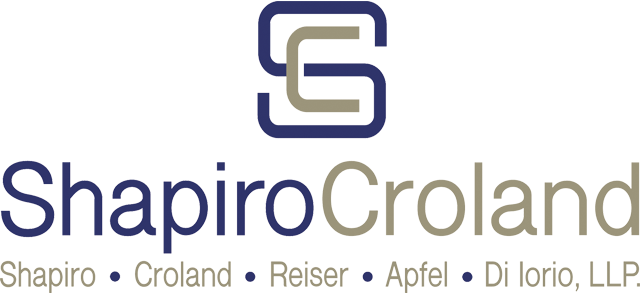What is a Derivative Suit?
It is well established that a shareholder of a corporation may not sue for personal injuries that result directly from injuries to the corporation. See In re Kaplan, 143 F.3d 807, 811-12 (3d Cir. 1998) (applying Illinois law). The rule is premised on the legal fiction of corporate existence, in which "an injury to the corporate body is legally distinct from an injury to another person." Official Comm. of Unsecured Creditors v. R.F. Lafferty & Co.,Inc., 267 F.3d 340, 348 (3d Cir. 2001).
As this post demonstrates, a shareholder must prove continuous ownership of stock in order to maintain a derivative lawsuit. In addition, the Federal Rules of Civil Procedure impose certain requirements on derivative lawsuits that practitioners must be aware of.
(i). Fed. R. Civ. P. 23.1 Controls Derivative Suits in Federal Court
Pursuant to FRCP 23.1(b), a complaint based on a derivative claim must be verified and "allege that the plaintiff was a shareholder or member at the time of the transaction complained of," and "state with particularity . . . any effort by the plaintiff to obtain the desired action from the directors or comparable authority and, if necessary, from the shareholders or members." Id. The Third Circuit interprets FRCP 23.1 as requiring a continuous ownership of corporate stock as a basis for derivative standing. See e.g., Santomenno v. John Hancock Life Ins. Co. (USA), 677 F.3d 178 (3d Cir. 2012); Kauffman v. Dreyfus Fund, Inc., 434 F.2d 727 (3d Cir. 1970), cert. den., 401 U.S. 974 (1971). In fact, ". . . the only right that a plaintiff in a derivative suit possesses is a secondary right derived from his status as a shareholder." Thus, if a plaintiff does not retain shareholder status, the plaintiff does not retain the right to pursue an action that derives from that status. The Continuous Ownership Requirement: A Bar To Meritorious Shareholder Derivative Actions?, 43 Wash. & Lee L. Rev. 1013, 1020 (1986) (internal citations omitted). (Emphasis added). Because the corporation owns the underlying cause of action and any resulting recovery, a non-stockholder "could not benefit from any recovery" and therefore lacks standing to pursue the litigation. Lewis v. Chiles, 719 F.2d 1044, 1047 (9th Cir. 1983).
Diversity actions (which involve litigants considered citizens of different states) brought under FRCP 23.1 involves the threshold question of "whether the court looks to state or federal law to determine a plaintiff's standing. The first requirement (i.e., that the plaintiff be a shareholder of the corporation at the time the action was filed) is governed by state law." Seth Aronson, et al., Shareholder Derivative Actions: From Cradle to Grave, 1762 PLI/Corp 163 (2009), * 11 (internal citations omitted). Derivative actions brought in federal court invoke the Erie doctrine. [See Erie Railroad Co. v. Tompkins, 304 U.S. 64 (1938)]. The Continuous Ownership Requirement: A Bar To Meritorious Shareholder Derivative Actions?, supra, 43 Wash. & Lee L. Rev. at 1015. In diversity cases, the Erie doctrine imposes state law to govern the substantive aspects of the suit and the Federal Rules of Civil Procedure to govern the procedural aspects. Id. at 1015-1016. [Italics in original]. "Disagreement exists, however, as to whether Federal Rule of Civil Procedure 23.1 . . . is substantive or procedural for purposes of the Erie doctrine." Id. at 1016. [Italics in original].
In Cohen v. Beneficial Industrial Loan Corp., 337 U.S. 541 (1949), the Supreme Court recognized that the continuous ownership requirement is necessary to prevent the federal courts from being used to vindicate "purchased grievance[s]." A stockholder who brings suit on behalf of the corporation assumes a position of a fiduciary nature, and sues not for himself but as the representative of other shareholders similarly situated. Id. at 549. The adequate representation requirement attempts to impose responsibility and accountability on a plaintiff in a derivative action to ensure that he protects the interests of the other shareholders. Id. at 549-550.
(ii) New Jersey State Law Governing Derivative Claims
N.J.S.A 14A:3-6.2 governs derivative suits under New Jersey law, and requires the plaintiff to remain "a shareholder throughout the derivative proceeding," and "fairly and accurately represent[s] the interest of the corporation in enforcing the right of the corporation." See also Pogostin v. Leighton, 216 N.J. Super. 363, 371 (App. Div. 1987)(citing earlier version of the statute and New Jersey Court Rule 4:32-5).
New Jersey follows the "American rule," whereby stockholders claiming injuries similar to all other stockholders "may not recover for the injury to [their] stock alone, but must seek recovery derivatively in behalf of the corporation." Strasenburgh, supra, 146 N.J. at 550 (internal citation omitted). In fact, New Jersey law bars shareholders from suing for injuries arising from the diminution in value of their shares resulting from wrongs allegedly done to their corporations." Pepe v. General Motors Acceptance Corp., 254 N.J. Super. 662, 666 (App. Div. 1992), certif.denied,130 N.J. 11 (1992).
Under New Jersey law,with closely held corporations a court has the discretion to treat derivative claims as a direct action if certain conditions are met, such as the absence of: (i) exposure to multiple actions; (ii) material prejudice to creditors; and (iii) interference with a fair distribution of recovery among all interested persons. Brown v. Brown, 323 N.J .Super. 30, 36 (App. Div. 1999), certif. denied, 162 N.J. 199 (1999) (internal citation omitted).

